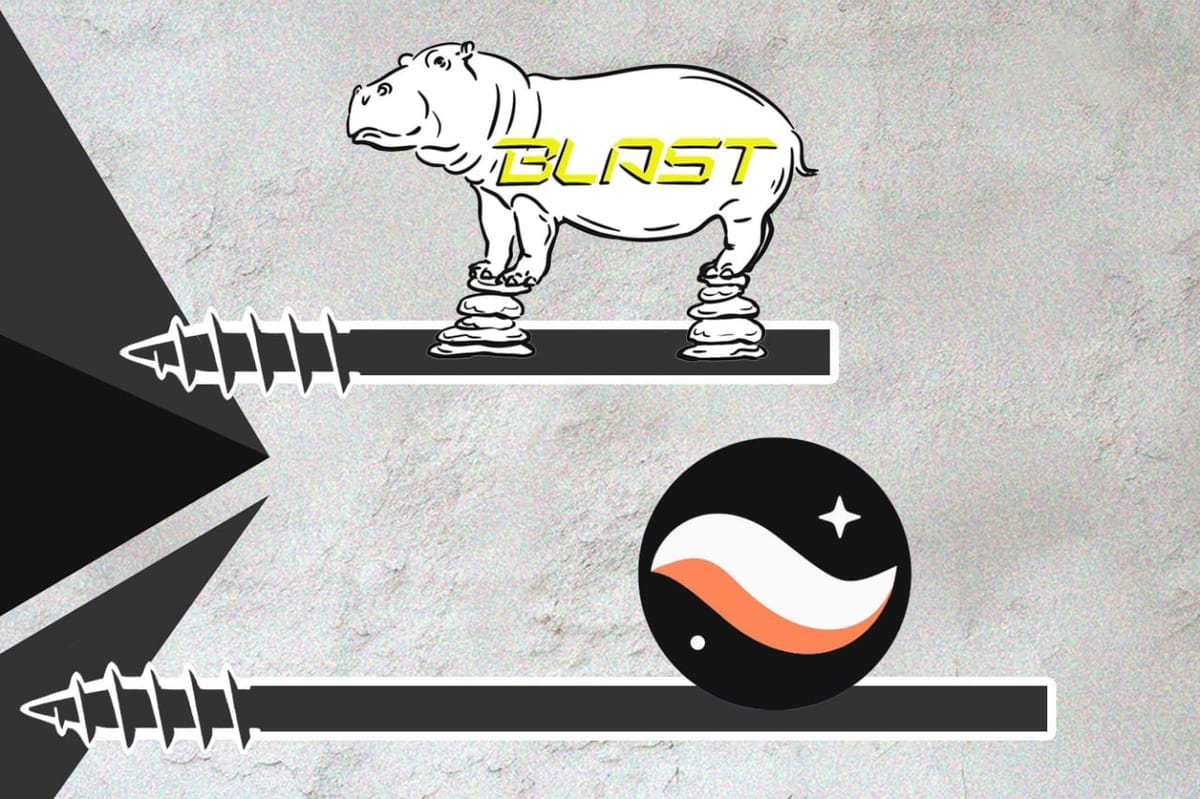
The Ethereum Layer 2 (L2) ecosystem has recently been a hub of activity, with the introduction of new networks to the mainnet and the unveiling of innovative technologies on a nearly monthly basis. This week has seen the launch of the Blast mainnet and StarkWare unveiling an open-source Zero-Knowledge Prover during the Ethereum Denver hackathon.
The launch of Blast on the mainnet has been eagerly awaited. The new network had attracted over $2.2 billion in deposits from airdrop hunters and has now officially launched. Blast distinguished itself among L2 providers with its innovative approach to attracting liquidity.
Notably, it offers a 4% Annual Percentage Yield (APY) for ETH deposits and a 5% APY for stablecoin deposits. This move to natively generate yield on assets is a first in the L2 space. To achieve this, Blast collaborated with ETH staking provider Lido and utilized MakerDAO’s on-chain T-Bill protocol to secure high yields on stablecoins.
Adding to its allure, Blast also offered an airdrop of its tokens to users who staked their ETH with Blast prior to the mainnet launch. This incentive was a key factor in attracting more than $2.2 billion in liquidity to the network. Users were required to stake their ETH until the mainnet launch.
However, following the mainnet launch, over $1.37 billion in ETH has been withdrawn, suggesting that many stakers were primarily interested in the airdrop.
Source: defillama.com
The mainnet launch of Blast has also ignited a flurry of activity among meme-coin traders on the platform, though this has unfortunately led to an increase in scams and rug pulls. Nevertheless, some of the larger projects have already reached market capitalizations in the tens of millions of dollars.
The project’s main token, $BLAST, has not yet been launched, with distribution to stakers planned for May.
Another significant development in the L2 space is StarkWare’s launch of the StarkNet Prover. This technology improves the efficiency of compressing transactions by generating cryptographic proofs, thereby reducing StarkWare’s processing costs and, consequently, user fees. Dubbed 'Stwo', it was developed in collaboration with Polygon and has been made open-source.
StarkWare’s COO, Oren Katz, noted that 'Stwo' is set to introduce new scaling possibilities that will be accessible to everyone from day one, given its open-source status.
Despite the lower fees on L2 compared to Ethereum’s mainnet, some believe that these are not yet low enough to encourage widespread adoption. For instance, sending a token on StarkNet currently costs around $0.45, while a swap costs $1.45. These fees can accumulate quickly for large-scale applications processing thousands of transactions daily, underlining the importance of advancements like the new prover in further reducing Ethereum L2 gas fees.

